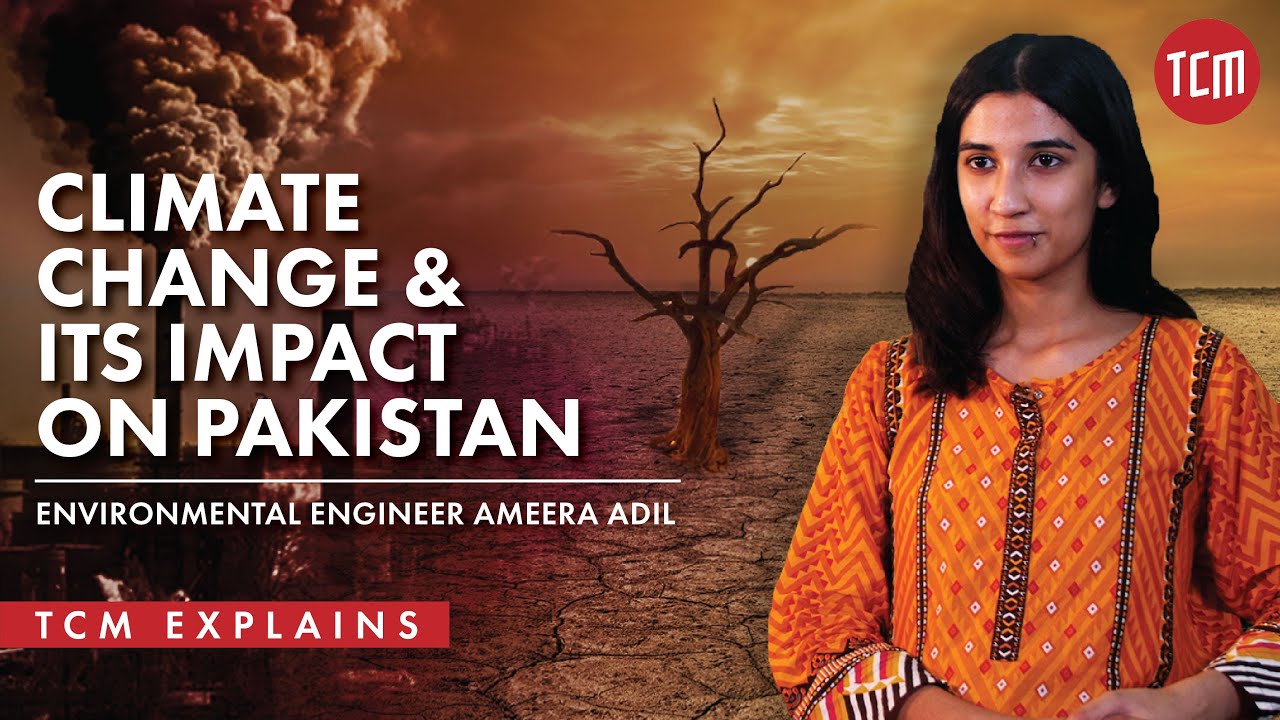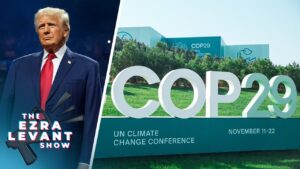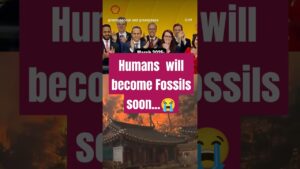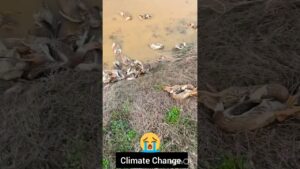
Climate change and global warming has increased the temperatures in Pakistan by 1 to 3 degrees as per studies. It is believed that it is the greatest threat to Pakistan and other countries of South Asia. Here is an insight.
——————-
Support Us on Patreon: https://www.patreon.com/bePatron?u=50940322
——————-
Subscribe to TCM Original: https://bit.ly/2A3pOXz
Subscribe to TCM: https://bit.ly/2Tu6AkW
——————-
Follow us on
Facebook:https://www.facebook.com/tcmoriginalsofficial
Facebook: https://www.facebook.com/thecentrummedia
Facebook: https://www.facebook.com/centrumenter…
Tiktok: https://www.tiktok.com/@tcmoriginals
Twitter: http://twitter.com/thecentrummedia
Instagram: http://instagram.com/thecentrummedia
——————-
Join our Facebook community: https://bit.ly/35oeLVs
——————-
Website: http://thecentrummedia.com
——————-
About The Centrum Media
The Centrum Media (TCM) has the credit of Pakistan’s first digital news operation specializing in visual storytelling. Being a premier online platform, TCM strives to enhance the online experience of the new generation, ranging from hard news to feature stories. TCM creates original content and curates simultaneously from multiple sources.
We will take you where the real stories happen but often go untold and unseen in the shortest possible time having more information. Unlike the traditional media, TCM aims at sharing diverse stories across multi-platforms aimed at the people who consume news through mobile and social stream. We take up the challenge in the digital arena to present the news in the most imaginative and innovative ways.
Your on-the-go lifestyle forces us to bring the news directly to your pocket devices.
source







Video on samilar topic https://youtu.be/lcpoLdvSpkM
Over population doesn't cause climate change ( It's now proven)
Climate change is caused over use of fossile fule and unnatural life style
Tnx medam
Well explained 👏 👌
(Buber) an unfortune village of Gilgit baltistan and many more villages were destroyed by floods. If i talk specifically of my village Buber, more than 200 houses were completely damaged and 10 people died. The level of destruction is unimaginable and unrecoverable for us. Indeed climate changes are bringing us ill fortune and many food and security related problems. All the responsible countries must take immediate actions to prevent such changes.
loved it, very informative
She quoted some unverified theoretical estimations as facts, thats unscientific and a bit common for climate activists. No one can change the climate except God, we can just improve our environment from pollution.
Neechay Walt lips men ring Dali huwi hay
The problems in pakistan have nothing to do with the climate , but rather , a lack of investment in the nations infrastructure, and that's because of the corrupt punjabi bourgeoisie and its petty government.
Population se agar issue hota to sab se pehle China ko hota… terha moun bana kar fazool bat kar rahi hai.
Good analysis. Thanks
https://climatechangeglobalwarmingweather.blogspot.com/2023/03/climate-change-global-warming.html
Who is this great engineer? I'm working on possible aid to Pakistan… post-disaster relief and a medium to improve the response rate… it would be great to talk to her.
Go again and do some more research about food wastage. The idea of generating power from waste had been shutting down for years in Pakistan because the calorific value of Pakistan's waste is way below as compared to the countries who are generation power from their waste. In Pakistan's waste you'll find alot of shopping bags, plastic material, diapers etc and the organic portion is way lower. Food wastage can be seen in the nations with food abundance. You'll find half eaten burgers and pizzas in the bins of American and Australian streets thus increasing the waste's calorific value. And there have been alot of composting activities on a very regular basis visit LWMC etc. So no food wastage isn't an issue here in Pakistan.
UET taxila students' critical knowledge on environment is very low … Especially in terms of analytical analysis. I am an Environmentalist from UVAS lahore. I have worked with an environmental engineer from UET taxila and her knowledge on analytical parameters was very low.
https://youtu.be/2_hPu2YUwKU
300/100😂increase? Ye kia
Make more videos on it.
Thanks for describe climatic zone with global warming of pakistan as sympathy lady and we are very pleasure of you to know environmental factors.
Very informative. From Imtiaz Pakistan 🇵🇰🇵🇰♥️🇵🇰🇵🇰
Thanks Mam Environmental science Student University of Peshawer
Thanks for providing information and knowledge about climate change. ✨
😢
Great job lady you covered everything about the climate change alongside the solution.Thanks for sharing such vital awareness.
She explained it very well.💫
In my opinion all countries have to sit together and make plans how to control this issue
What's wrong with her lips
7:14 (disappointed with that statement)
you make it sound like children are the cause of worlds problem,
There is no over population issue…
The only issue we face is the issue of population management also Allah is the provider of all neither you nor anyone else gives food to millions of people around the world, the crops, the animals the food they're all blessings of Allah Subhana Watallah
Making women educated & give them choice to bear children or not is western culture & policy…
Of course women should be education but not for becoming the 2nd boss of society…
I think every mature & educated women would herself choose to become a mother …
Once again, children or overpopulation is not the cause of our problems…
(Just a reminder there are well educated, well advance countries out there faced with the threat of population declining just because of the lower birth rate which often comes with your educated women…)
❤
Informative video ❤
"Planet of the Humans" is a documentary film directed by Jeff Gibbs and produced by Michael Moore. Released in April 2020, the film takes a critical look at the renewable energy industry and its impact on the environment. It explores the efficacy of various renewable energy sources and questions the sustainability of the green energy movement.
Here are some key points and themes from the documentary:
Critique of Renewable Energy: The film challenges the notion that renewable energy sources such as solar, wind, and biomass are entirely clean and sustainable. It suggests that these technologies still rely heavily on fossil fuels for their production, transportation, and maintenance.
Biomass and Biofuels Controversy: "Planet of the Humans" raises concerns about biomass and biofuels, arguing that the use of wood and other organic materials for energy production may have negative consequences, such as deforestation and the release of carbon dioxide.
Corporate Influence: The documentary highlights the role of corporate interests and profit motives within the green energy sector. It suggests that some companies in the renewable energy industry prioritize economic gains over environmental sustainability.
Population Growth and Consumption: The film addresses the broader issue of overpopulation and excessive consumption as major contributors to environmental degradation. It questions whether current efforts to address climate change are sufficient without addressing these fundamental issues.
Technology's Limits: "Planet of the Humans" questions the belief that technological solutions alone can solve environmental problems. It argues that a shift in lifestyle and a reduction in overall energy consumption are necessary to achieve true sustainability.
It's important to note that the documentary has been met with a range of opinions, and its arguments and assertions have been both supported and criticized. While it raises valid concerns about the environmental impact of certain renewable energy technologies, some critics argue that it does not adequately acknowledge the ongoing advancements and improvements within the renewable energy sector.
Ultimately, "Planet of the Humans" encourages viewers to reevaluate their assumptions about the environmental benefits of renewable energy and to consider broader issues related to sustainability and consumption.
Ok agree but a question that how much decrease in carbon concentrations should be? Can you put light on this question.
صرف درخت لگانے سے ہی نہیں, ہر طرف سے اقدام اٹھانا ہو گا ماحول کو صاف رکھنے کیلئے جو کہ خطرہ کا باعث بنتا جا رہا ہے, اس میں ہر انسان کو اپنا کردار ادا کرنا ہو گا, یعنی اگر کوئی آپ کو مفت میں پیلا بلب فری میں دے, مگر آپ پے کر کے انرجی سیور خرید لیں. درخت لگانا, کچرا ری سائیکلنگ, پیٹرول وہیکل کی بجائے الیکٹرک وہیکلز استعمال کرنا, دھواں پیدا کرنے والے عوامل سے دور رہنا جیسے اقدامات ہیں.
What a good speaker.. explain each and everything so smoothly.. just hat's of
Thanks for the wonderful information
باجی تیری مہربانی اے کوئی ہور کم کر
She has explained it wonderfully. ❤
How may i get the contact of this lady ???
Such a comprehensive talk with comfortable tone of voice.
great
Heart touching voice … ❤